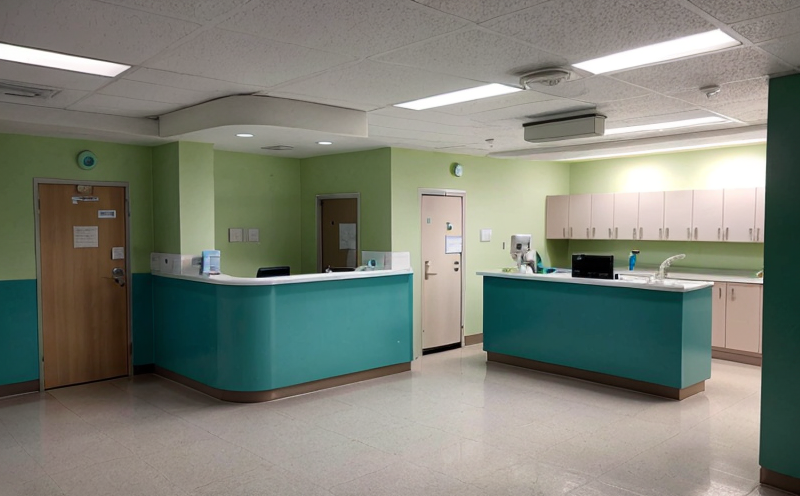EP 2.6.14 Endotoxin Testing of Injectable Hospital Products
The European Pharmacopoeia (EP) Chapter EP 2.6.14, titled “Endotoxin testing”, is a critical standard for ensuring the safety and quality of injectable products used in hospital and healthcare settings. This test ensures that the product does not contain endotoxins, which are toxic substances derived from the cell wall of gram-negative bacteria.
Endotoxin contamination can lead to severe adverse effects including febrile reactions, immune suppression, or even septic shock. Therefore, it is essential for pharmaceutical manufacturers and healthcare providers to adhere to this standard during the manufacturing process and quality control checks.
This service involves a rigorous procedure that includes sample preparation, reconstitution of test solutions, inoculation with reference test bacteria, incubation, and finally, performing the gel clot method or LAL (Limulus Amebocyte Lysate) assay to detect endotoxins. The LAL test is widely used as it provides a rapid detection of endotoxins by utilizing the natural response of horseshoe crab blood cells.
The process not only ensures safety but also helps in maintaining product efficacy and integrity, which are crucial for hospital-grade products. For instance, in injectable medications, any trace of endotoxin can compromise patient safety. This service is especially important in ensuring that the product does not cause any adverse reactions in patients.
The testing process requires a sterile environment to avoid contamination and ensure accurate results. Our laboratory adheres strictly to these protocols, ensuring that each test is conducted under controlled conditions. The methodology also involves maintaining detailed records of all experimental parameters, including temperature control during incubation periods, which are critical for accurate endotoxin detection.
Our team of experts ensures that the samples are handled with utmost care and precision from receipt to final analysis. This includes using only certified reagents and instruments to ensure consistency and reliability in test results. The service also involves a strict calibration process for all equipment to ensure that no errors arise during testing.
Scope and Methodology
| Parameter | Description |
|---|---|
| Sample Preparation | Ensure sterility, reconstitute solutions as per instructions provided by the manufacturer, and perform inoculation with reference test bacteria. |
| Inoculation | Inoculate the prepared solution with appropriate amounts of reference test bacteria according to the specified volume. |
| Incubation | Incubate the samples at 37°C for a period of 4 hours, ensuring that conditions are optimal for endotoxin growth and detection. |
| Gel Clot Method/LAL Assay | Perform either the gel clot method or LAL assay to detect the presence of endotoxins. The LAL test is preferred due to its rapidity and sensitivity. |
The gel clot method involves monitoring for any turbidity in the sample, which would indicate the presence of endotoxins. On the other hand, the LAL assay uses the natural response of horseshoe crab blood cells to detect these toxins. Both methods are highly sensitive and provide accurate results.
Eurolab Advantages
- State-of-the-art facilities for conducting endotoxin tests in a controlled environment.
- Experienced technical staff with expertise in the latest testing techniques and protocols.
- Use of high-quality reagents and calibrated equipment ensuring precision and reliability.
- Detailed documentation and reporting to meet regulatory requirements and standards.
- Prompt turnaround times for results, enabling quick decision-making by stakeholders.
- Comprehensive understanding of EP 2.6.14 guidelines, enabling accurate adherence during testing.
- Extensive experience in handling various types of injectable products, ensuring a wide range of expertise.
Competitive Advantage and Market Impact
- Regulatory Compliance: Ensures that products meet strict regulatory standards, enhancing trust among healthcare providers and patients.
- Patient Safety: By detecting endotoxin contamination early in the process, this service significantly improves patient safety.
- Brand Reputation: Consistent adherence to high-quality testing ensures a positive brand image among consumers and stakeholders.
- Advanced instrumentation for precise detection of endotoxins, ensuring accurate results every time.
- Robust quality control measures that minimize the risk of errors or contamination in test samples.





